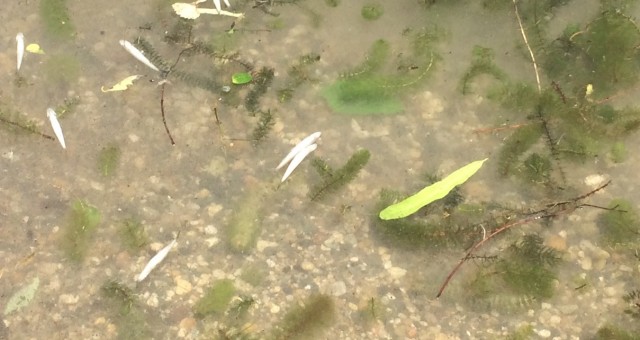
Gull Lake Smelt Die-Off
Over the past weekend (June 11th and 12th), you may have noticed an extraordinarily large number of dead smelt in Gull Lake. Based upon conversations with local anglers and with the DNR, we understand that the most likely cause of the smelt die-off was thermal stress as Saturday was one of the hottest days of the year. The appearance of the dead fish supports this conclusion due to the absence of hemorrhages or other signs of disease. Most of the smelt were similar in size and presumably were schooling together in the same type of habitat. While much of Gull Lake, especially the deeper water, remained cool, schools of smelt may have been trapped in bays or other localized patches of warm water. Smelt are less tolerant of increases in water temperature than bass or bluegills, which explains the preponderance of smelt in the kill.
We understand that a DNR technician visited Gull Lake and collected some dead smelt, however, at this point there is no plan to send them to the laboratory. Given the condition of the fish it would only be possible to test for viruses. Live diseased fish that are still alive are required to definitively identify bacterial pathogens, and there are not any well-known bacteria or viruses that only infect smelt. Our understanding is that the smelt die-off is not indicative of any water quality problem in Gull Lake and even if the fish kill was caused by a bacteria or virus (which seems unlikely), the organisms that infect fish are not a safety risk to humans.
Bryan Beck, Chair
GLQO Fisheries Committee
